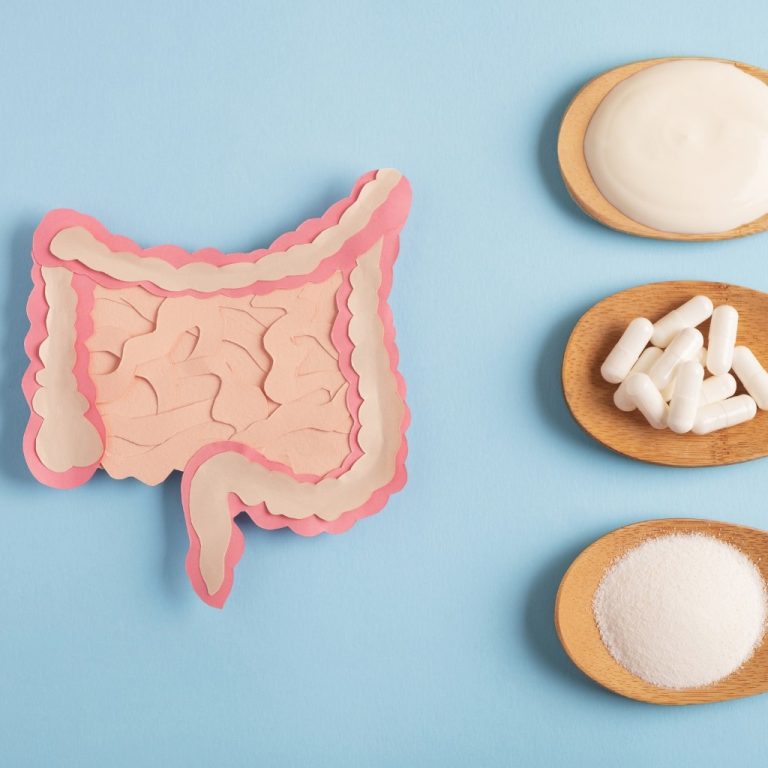Once pregnancy is confirmed, the joy is endless! A new exciting and challenging time begins for the parents-to-be. Especially for the mother, there are a lot of things to consider, including your diet. After all, nutrition during pregnancy is crucial for the development of your child. There are certain foods that you should avoid during your pregnancy – we have summarized all the important information for you in this article.
What should I eat during pregnancy?

With optimal nutrition, a mother can give her child the best possible start in life, as this is a key factor for the healthy development of the baby. A balanced diet that meets the needs is essential for mother and child. “Eating for two” is not entirely necessary here. Energy requirements do not increase as much during pregnancy as most people assume. In fact, the total additional requirement is only up to 500 calories.
However, the need for nutrients such as vitamins, minerals and trace elements does increase. If these are not sufficiently provided by the food intake, the baby falls back on the mother’s reserves. The following nutrients are particularly important during pregnancy: folic acid, iodine, iron, vitamin D and omega 3.
Foods with a high nutrient density, such as fresh fruits and vegetables, whole grains, fish, and low-fat meat, are recommended here. Studies show that a baby’s immune system develops particularly well when the maternal intestinal flora is healthy. In addition to nutrition, the expectant mother’s body weight is also of great importance not only for the course of pregnancy and birth, but also for the child’s health in the long term. Normal weight gain for a woman during pregnancy is between 10 and 16 kilograms. Of course, variations are normal because not every pregnancy is the same.
For a good start for mother and child, colonization of the good bacteria is of enormous importance. As a mother you can strengthen the bacterial flora in your intestine through a balanced, high-fiber diet and specially combined probiotics. This is transferred to the child in several ways: During a natural birth, the baby primarily comes into contact with the maternal lactic acid bacteria, which then work their way into the child’s body in the shortest possible time.
What should I look out for?
At the beginning of a pregnancy, it is quite normal that you are bombarded with friends and family telling you what you should and should not eat. Sushi, cured ham and alcohol – what should you really avoid and why can some foods cause harm to your baby? As already mentioned, what you eat during pregnancy has an impact on the development of your child. Therefore, in considering the welfare of the child, the mother should avoid certain foods.
It is advised that the following food and drink should be avoided:
- Raw or soft-boiled eggs
- Rare or medium rare meat that is not fully cooked through (steak, beef tartare, roast beef)
- Cured meats and sausages (prosciutto, salami)
- Unpasteurized and soft cheese (camembert, cheese with rind)
- Raw or smoked fish (sushi, smoked salmon, seafood)
- Plant-based foods that is not heated before consuming (prepared salads, vegetables, fruit) should be thoroughly washed.
- Alcohol and drinks containing caffeine
Even if good hygiene practices are in place, some risks cannot be completely ruled out, especially those concerning listeriosis and toxoplasmosis. Listeriosis and toxoplasmosis pathogens are mainly found in raw animal-based food. For adults with a strong immune system, they are mostly harmless, only flu-like symptoms may occur.
However, caution is advised during pregnancy! The immune defense is lowered, and the risk of disease is therefore greatly increased. The unborn child could become infected. Miscarriage, premature birth, or other complications in the pregnancy can be the result. If an expectant mother becomes infected with one of these pathogens during pregnancy, this is treated medically with antibiotics.
Milk and other dairy products
Raw milk and the cheese made from it may contain listeria, which is a concern for pregnant women. The label always indicates what the cheese was made from. Semi-hard cheeses made from pasteurized milk, such as gouda, butter cheese and edam, are a safe alternative. However, it is still recommended to remove the rind. Dangerous bacteria can accumulate there. Hard cheeses made from raw milk, on the other hand, are safe if they are heavily dried due to the long ripening process, for example parmesan. All soft cheeses such as camembert, gorgonzola, and brie, should be avoided. The same applies to pre-grated cheese: if good hygiene practices are not in place, then listeria can make its way onto the grated cheese. It is better to buy the cheese in one block and grate it fresh just before eating.
 Raw or smoked fish
Raw or smoked fish
In addition to the risk of listeria, some sea fish are also contaminated with heavy metals and mercury. Nevertheless, fish should not be completely avoided, as it provides valuable omega 3 fatty acids, which are important for the normal development of the child, especially docosahexaenoic acid (DHA). It should be noted that predatory fish from the sea should be eaten rarely or not at all. These include tuna, swordfish, and rockfish, for example. It is important above all that the fish is well cooked, all the way through! Therefore, pregnant women should completely avoid raw fish, such as sushi, sashimi, or carpaccio.
Meat and cured produce
Toxoplasmosis pathogens can be found in raw meat. While infection would be harmless for the mother, it can be dangerous for the unborn child. These pathogens can have a negative effect on the child’s brain development. In the case of a first-time infection, the pregnant woman is given an antibiotic. If the expectant mother already had a toxoplasmosis infection in the past, then she is immune to a new infection.
However, listeria, or other pathogens, can also be found in raw meat, which is why it is a good idea for all pregnant women to avoid raw meat and cured produce. In concrete terms, this means that steak (medium, or rare), beef tartare, raw sausage, and cured meat products (salami, smoked ham, etc.) should be avoided by expectant mothers. Liver should also not be eaten during the first trimester of pregnancy. However, meat also provides valuable iron and protein. Therefore, meat should not be avoided completely, but should always be well done!
Raw eggs
Raw eggs can contain salmonella, which can lead to salmonella poisoning. In this case, the affected person suffers from severe nausea and vomiting. The infection itself is not transmitted from the expectant mother to the unborn child. However, it can lead to the baby not getting the nourishment that it needs. For this reason, pregnant women should avoid foods containing raw eggs, such as tiramisu, zabaione, or chocolate mousse.































